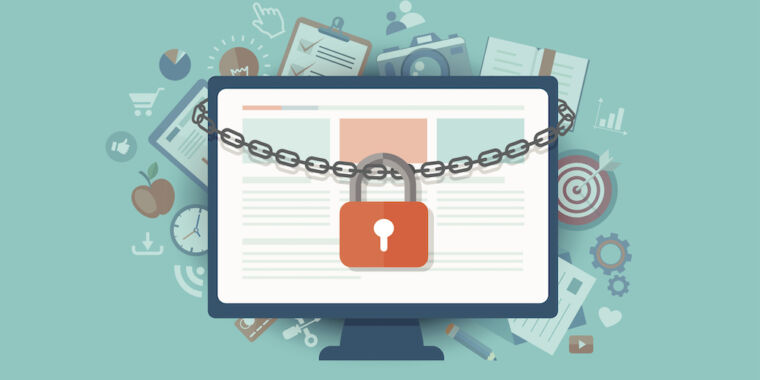- cross-posted to:
- tech@kbin.social
- cross-posted to:
- tech@kbin.social
Starting in version 1.54, [the browser] Brave will automatically block website port scanning, a practice that a surprisingly large number of sites were found engaging in a few years ago. According to this list compiled in 2021 by a researcher who goes by the handle G666g1e, 744 websites scanned visitors’ ports, most or all without providing notice or seeking permission in advance. eBay, Chick-fil-A, Best Buy, Kroger, and Macy’s were among the offending websites.
this raises my antennae way up but i have to admit, although being probed makes my skin crawl, i don’t actually understand what bad actors can do. it seems bad but that could be fud.
more distressing is the wall of shame; if even slightly true, this is hideous. typing just obvious things i know from just one screenful of a 700±line document: state farm, lending tree, citibank, glassdoor, iberia. for some reason financial firms are heavily represented here.
anyone have any knowledge in this domain? and if it’s an actual problem, what’s the best way to put a ring around it? the actor is inside your browser, so the usual firewall tricks don’t apply.



The Nice: This is possible because the original web protocol allows sites with CORS disabled to be able to still access 127.0.0.1 This allows for websites to assist in setting up installed programs, and plugged in devices. (Long before the days of Electron) or registering warranty. It can also allow locally installed software to communicate with their web counterparts. Your local Steam website could potentially host a site on 127.0.0.1 and tell steampowered.com what games are installed. It can also be used to see if someone is remoting into your computer (or similarly acting malware) and thusly increasing fraud likelihood score, or asking for 2FA. Think grandmas getting scammed over the phone. This is why it is so prevalent on banking sites.
The Naughty: This can also be used as part of a larger scheme to uniquely Identify users and help detect fraud. Identifying users speeds up login and can reduce local storage duplication even in the case of cookie clearing. They scan as much data about you as they possibly can: 1rdt and 3rd party cookies, local storage, browser size, screen size, operating system, browser, what extensions do you have installed, what ports you have open, etc etc. Faster login and fraud detection sound like noble goals, but in reality these are used to generate an ad profile about you. The more data they collect on you the higher a price ad agencies will pay to advertise. In some cases they will have your name and DOB (think Google and Facebook) but modern systems are complex enough that they don’t need that anymore. In many cases their match of you is more accurate then a literal fingerprint. Now most people don’t have ports open so I don’t know of, off hand, any websites that are doing this but it’s entirely possible. Did you open a port for World of Warcraft? If so we can target WoW and RPG ads to you, etc.
The evil However you feel about large corporations fingerprinting your online presence this is a reconnaissance technique used by bad actors to find insecurities on your network and device so they can identify ones to hack.
Consider this analogy: imagine if a corporation went around door to door checking to see if your door is unlocked. They tell you and the government that the reason they are doing that is to see who is liable to get broken into. They also take this data and use it to send you advertisements for door locks. Now someone else goes around door to door dressed like the corporation and actually breaks into your house. The robber definitely broke the law, but was facilitated by the corporation that was borderline breaking the law.
If you implement a system where they have to ask before testing your lock (like Brave is) you can get the best of both worlds, but you alone are responsible for identifying bad actors.